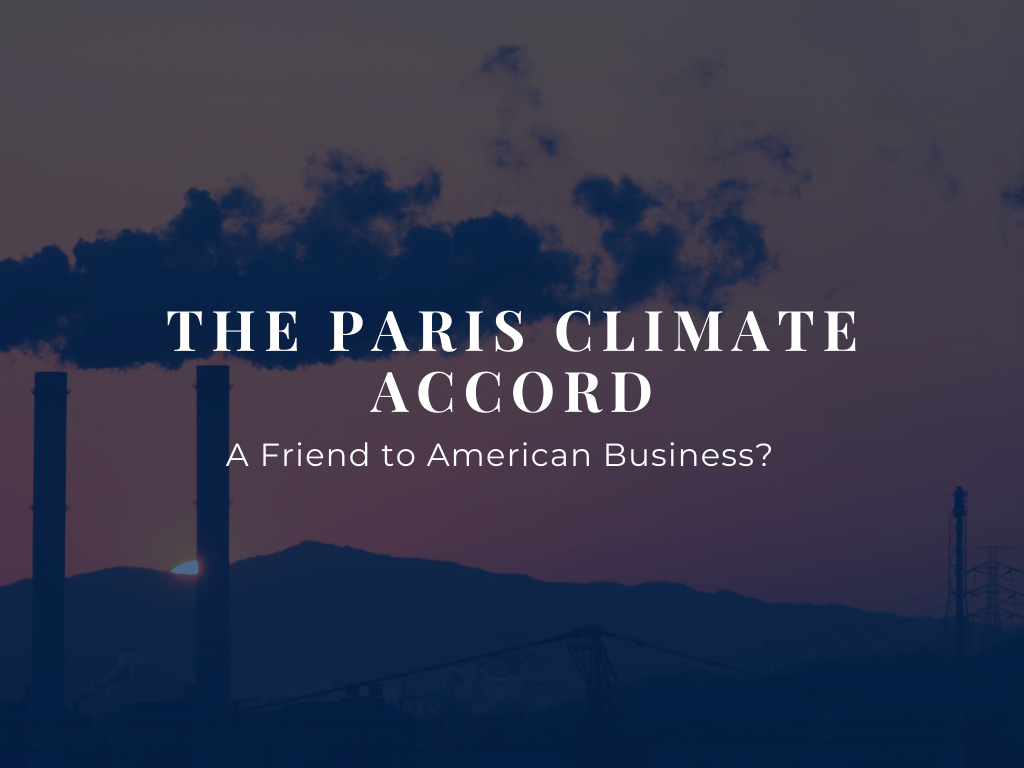
The U.S. rejoined the 197-nation Paris Climate Accord. Under the accord, the U.S. has committed to reducing greenhouse gas emissions by 50% of 2003 levels. President Biden has also stated that his administration wishes to move the U.S. to net zero emissions by 2050.
There is a great deal of trepidation about the potential economic consequences surrounding this matter. The concern is that it will require a lowering of consumption in the U.S. and even our standard of life.
If these targets are not just posturing but serious goals, they may portend both large government spending and tax incentives. Rejoining the Paris Climate Accord may signify a historical capital spending boom by both government and private businesses.
Skyscraper Case Study
While the Paris Climate Accord as a boon to business runs contrary to the politically far right and far left, one can look at the case study of the Empire State Building.[1] Construction on the iconic Empire State Building was completed in the early 1930s. As with many well-constructed but aging buildings in the U.S., its internal systems had lasted for many years beyond their expected lifespans.
By 2010, the building systems were obsolete, and the building was highly energy inefficient. A complete retrofitting of mechanical systems had begun. The Energy Efficiency Retrofit Program lent the building owners $500 million to bring the building up to standard. The owners replaced a total of 6,534 windows and window frames, replaced 2,500 toilets with water-efficient models, renovated the HVAC systems, installed smart elevators that can take riders up 86 floors in under a minute and thoroughly insulated the building.[2] The result was a 38% reduction in energy usage, and savings in energy costs repaid the loan in a little over three years.
From the Paris Climate Accord standpoint, the retrofit of the Empire State Building reduced greenhouse gas emissions equivalent to removing 20,000 cars from the road. At the same time, this capital spending produced employment for many people and profited many businesses in a variety of sectors.
Imagine the possible follow-on effects of a nationwide program to improve the energy efficiency of all buildings.
Paring Down Inefficiency
A new way of looking at pollution is not as a byproduct of activity, but as the byproduct of inefficient activity. All around us, you can see this concept: mountains of waste from inefficient packaging, natural gas vented from an oil field because there is no way to pipe the gas to market, a sprinkler system that operates automatically and waters a lawn during a rainstorm, through discarded past-dated food or the smelly exhaust of an old bus in need of an engine overhaul ahead of you in traffic. At a basic level, all of these examples represent inefficient processes.
Will mandates bring the U.S. in line with the Paris Climate Accord change industry and lives? The answer is certainly “Yes.” Will it be good for the environment? The answer is “Yes?” Will it be a net plus for the overall economy? It may end up being a big “Yes?” All in all, we will have to wait and see how things transpire and only the future will tell.
[1] Statistical information on the Empire State Building and the 2010 retro fit provided by Empire State Realty Trust.
[2] Statistics on plumbing fixtures in the Empire State Building provided by UA Local No. 1, The Plumbers Union of New York City.
Need a Financial Advisor?
If you are currently looking for help with financial planning, contact us. We are happy to schedule an introductory meeting at your convenience.



